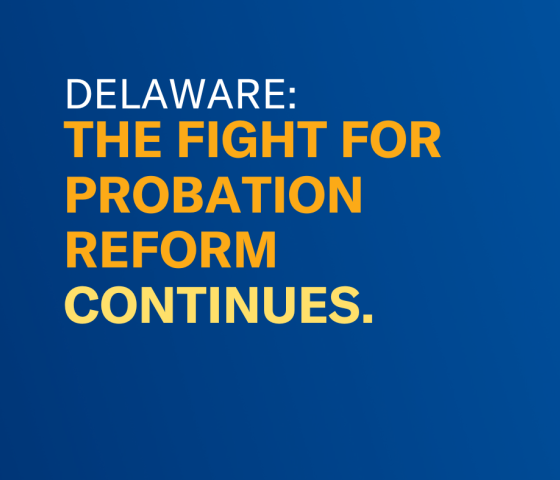FOR IMMEDIATE RELEASE: Wednesday, December 1, 2021
CONTACT: Morgan Kelly, Communications Director, ACLU of Delaware, Email: [email protected]
WILMINGTON, DE — Current policing systems in Delaware are in dire need of reform—but in order to understand where we are, we have to understand how we got here. That was the focus of conversation at the virtual education event held on December 1 focusing on the history of the Law Enforcement Officers’ Bill of Rights (LEOBOR) hosted by the ACLU of Delaware and the NAACP Newark branch.
Delaware’s LEOBOR statute, first passed in 1985 in response to Reagan-era “tough on crime” rhetoric and policies, has become one of the worst statutes in the nation for police transparency and accountability—but advocates note that it wasn’t always that way.
“The original intent of Delaware’s LEOBOR statute was to create a set of guidelines that would ensure due process for police officers who have been accused of misconduct, so that all officers receive the same treatment throughout the state,” said Haneef Salaam, manager of the Delaware Campaign for Smart Justice. “So how did we go from a statute that intended to create uniform standards for police discipline to a statute that prevents police from being effectively disciplined when they violate the law and the rights of Delawareans?"
During the event, panelists said that in the last 36 years, Delaware’s LEOBOR statute has morphed into a statute that serves one main purpose: keeping law enforcement shielded and protected from the public on the taxpayers’ dime.
One reason why Delaware’s LEOBOR has become worse is that it has been amended over the years. In 1995 and 1996, the General Assembly passed laws to amend LEOBOR by making police disciplinary records and details of investigations exempt from Freedom of Information Act (FOIA) requests, completely blocking the public from having any transparency in any police-involved incident. And it’s remained that way since. Advocates say that now is the time to replace those amendments.
Cyndie Romer, NAACP - Newark, said “Under the current LEOBOR statue in Delaware, the public has almost no insight on why an incident occurred, what could have been done to prevent it, or what disciplinary actions, if any, happened as a result of the investigation. We need to update LEOBOR to repeal the harmful amendments that were passed in the 90’s and replace them with an amendment that will make police disciplinary records and use of force reports public record once again.”
Domestic violence awareness advocates are joining the fight for LEOBOR reform, too, and offer a unique and important perspective on the issue.
“Domestic violence and sexual violence has not always been something the criminal justice system has handled as well as they should, and there are reasons that a lot of people don’t feel comfortable. That’s something we want to change,” said Nick Beard of the Delaware Coalition Against Domestic Violence. “I want to make sure that when [community oversight boards] are discussing how police should respond to these incidents, there’s someone in the room who says, ‘I’ve experienced domestic violence,’ or ‘I’m a childhood sexual abuse survivor,’ or ‘I went through the criminal justice system, and this is what works and what didn’t.’ Those are really important voices to be heard.”
Panelists for tonight’s event included Cyndie Romer, NAACP - Newark, Keandra McDole, Smart Justice ambassador, Misty Seemans, assistant public defender, Delaware Public Defender’s Office, Nick Beard, policy coordinator, Delaware Coalition Against Domestic Violence, and the event was moderated by Haneef Salaam, manager, Delaware Campaign for Smart Justice.
Watch the virtual event online herE
Please note: this link will take you to a third-party website, www.youtube.com.
###








